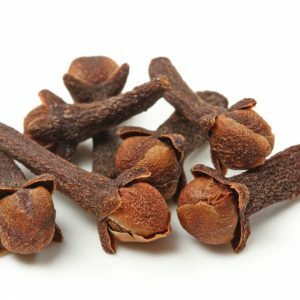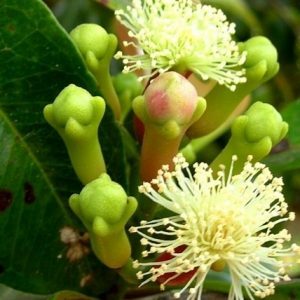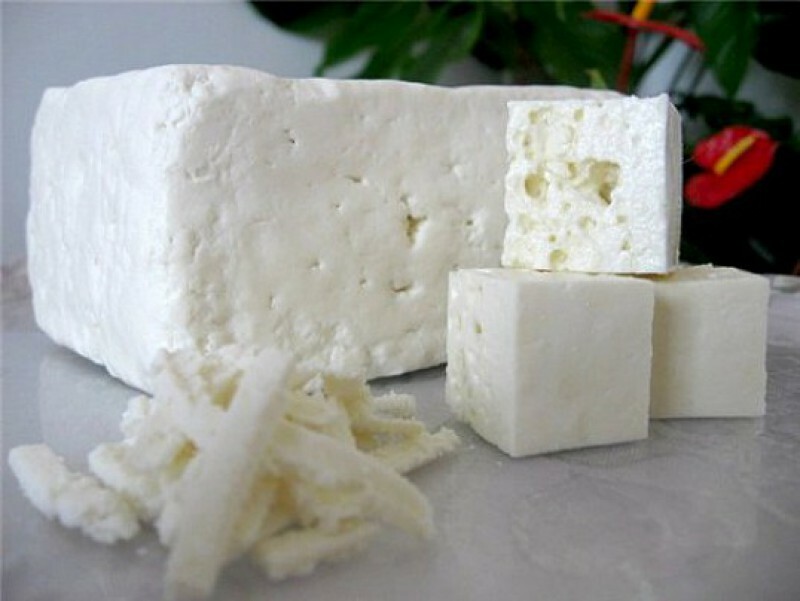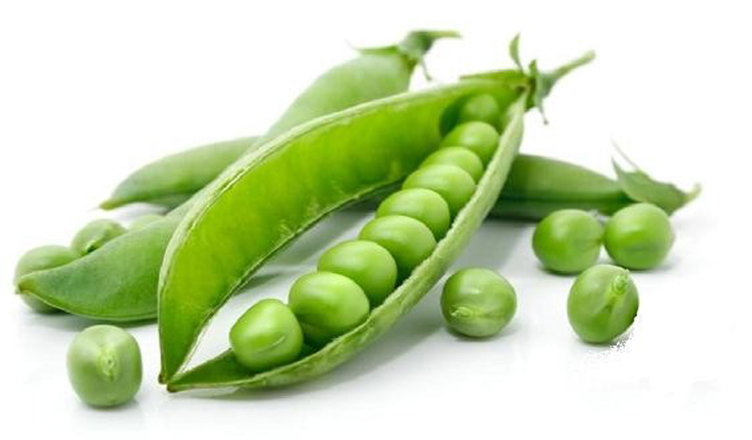Carnation: benefit and harm, use in medicine

Carnation - dried, unopened flowers of clove-tree is a spice widely used in cooking and perfumery, the useful properties of which have been known for more than 2 thousand years.It was then in her homeland - in China - that the first application of a pleasant aroma of a plant was found.
Interesting! But the use of cloves in folk medicine began much later - after the XVI century, when the Portuguese brought this spice to Europe.
Composition and caloric content
Clove has its nutritional and medicinal value due to its rich content of nutrients.Proteins in 100 g cloves 6 grams, fats - 20 g, useful carbohydrates - 27 g. Just like in any plant, this spice contains 34 g of indigestible fiber, which cleanses the intestines from slags.Due to the drying of water in the carnation is very small - only 6%.
In addition to the basic nutrients, the composition of the carnation includes:
-
 essential oils that provide the healing properties of the plant and its pleasant aroma - karyophyllene, eugenol, ylangene;
essential oils that provide the healing properties of the plant and its pleasant aroma - karyophyllene, eugenol, ylangene; - vitamins - C, K, group B, beta-carotene, tocopherol;
- a large number of macro and microelements;
- glycosides;
- tannins.
The energy value of the carnation is quite high for spices - 323 kcal per 100 g. However, it is added to small amounts in food, so the caloric content of dishes does not significantly influence.
Useful properties
The main property of cloves, thanks to which it has found application in cooking, is the spicy taste and aroma provided by the high content of essential oils .Carnation is added to vegetable, meat, fish and mushroom marinades, soups and broths, tinctures.Together with cinnamon, it is used as an additive to tea, coffee and confectionery.
The use of cloves in medicine is due to the following actions:
- antiseptic;
- antibacterial;
- analgesic;
- is antispasmodic.
 The most common carnation is used for dental problems.In its pure form or in the form of a decoction, it relieves of toothache and unpleasant sensations with inflammation of the oral cavity. It is used for gingivitis, stomatitis, periodontal disease and other diseases, especially those that cause bad breath.
The most common carnation is used for dental problems.In its pure form or in the form of a decoction, it relieves of toothache and unpleasant sensations with inflammation of the oral cavity. It is used for gingivitis, stomatitis, periodontal disease and other diseases, especially those that cause bad breath.
Carnation has a positive effect on the digestive tract.It stimulates the secretion of gastric juice, which improves appetite and accelerates the digestion of food.Spice helps with a variety of problems with the intestines: bloating, colic, diarrhea.Thanks to its bactericidal properties, the carnation helps the body fight various parasitic intestinal infections.
Essential oils contained in cloves are useful for catarrhal diseases: they relieve inflammation of the nasopharynx, facilitate breathing, relieve cough.Vitamins also improve the body's own defenses. With sore throat, it is possible to use milk sprinkled with cloves, which must be retained in the mouth, so that the spice acts on the inflamed mucosa.
Harmful and contraindications
Like other burning spices, carnation increases gastric acidity and is harmful in the following diseases:
- inflammation of the digestive system;
- ulcers of the stomach and intestines;
- hypertension;
- reflux disease;
- increased acidity of gastric juice.
Important! It is not necessary to add cloves to food during pregnancy and lactation.In these cases, it is harmful not only because of the sharp taste, but also because of the toning properties - the walls of the uterus can tense, which will negatively affect the fetal condition.In addition, it is not recommended to add spices to children's food.
Tips for using
Thanks to essential oils and B vitamins, carnation has a positive effect on the nervous system and warms the body - you can use it daily to relax. There are three ways to do this:
-
 Take internally in the form of an elixir in small doses of .Carnation will play the role of a sedative, relieve nervous tension and anxiety, improve sleep and allow faster recovery after a hard day.
Take internally in the form of an elixir in small doses of .Carnation will play the role of a sedative, relieve nervous tension and anxiety, improve sleep and allow faster recovery after a hard day. - Take a bath by adding 4-5 drops of clove oil to a spoonful of sea salt and diluting the mixture in the water .This bath not only relaxes and improves mood, but also helps to cope with the beginning cold, improve blood flow in the skin, relieve aggravated asthma.And if you add to this massage, then the pain in the muscles and joints will go away.
- Apply as compresses to bruises, abrasions, burns , inflammations of the skin.Eugenol has a bactericidal effect and is an excellent disinfectant.But too much clove oil can not be used - it can worsen the skin condition.
The most useful is the fresh clove;The old one not only loses some of the properties, but also gets an unpleasant smell.To make sure that the spice is ready for use, you need to throw it into the water - fresh umbrellas will drown or will float a hat up, the old will float horizontally.



